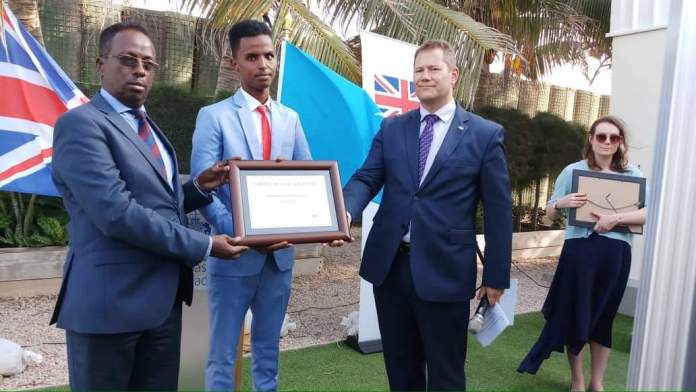
Journalists in Somalia have said they are fleeing their country due to increased violence and threats from the state security forces ahead of the country’s disputed general elections.
In the unstable Horn of African nation, transition periods and elections are always problematic for journalists, as the engaged clan politicians and corrupt government officials attempt to threaten the press into silence. This year’s parliamentary elections are due on December 2020 and the presidential on February and these are no exception.
The space for press freedom has become more repressive as Somalis faces the biggest challenge to hold one-person one-vote poll since 1969 when the dictator Mohamed Siyad Barre took over the country’s presidency in a military coup.
In the lead up to the highly disputed election, local journalists say the pressure has increased into unprecedented level, with authorities targeting critical journalists with arbitrary detentions, and criminalising independent reporting under accusations of false news and national security to silence would-be critics.
Mohamed Ibrahim Bulbul, an award-winning reporter for the popular privately-owned Universal TV is one of the journalists who fled the country into exile recently.
He says his investigative report in last September found that Somali government was forced to cease a construction contract at the Mogadishu Football Stadium following threats by the militant group al-Shabaab irking authorities’ rage.
“The pressure was immense. Officials at the Ministry of Information were forcing my boss to fire me. I was even scared because unknown people visited my home while I was away,” Bulbul told Horn Observer in Istanbul, Turkey.
In July a prominent journalist Abdiaziz Gurbiye was sentenced to six months in jail a cash fine imposed for writing an article alleging the Somali president took a donated ventilator from the local hospital while a radio editor, Mohamed Abduwahab Abuuja was tried in a military court for writing critically on the state security forces.
“They jailed these two colleagues because they knew they could not flee. I was lucky to flee before they could catch me in March this year,” Bulbul adds.
The Committee to Protect Journalists describes Somalia as a very dangerous places for journalists. Since the advocacy organization began counting journalist deaths in 1992, it has recorded at least 69 confirmed cases of journalist killings there.
Journalists who spoke to Horn Observer said that the repressive climate for the press in Somalia makes covering the upcoming elections hard and that some journalists prefer not to cover the elections to avoid retaliation. The incumbent president Mohamed Abdullahi Farmajo is attempting a term extension after the end of his tenure which, according to political analysts and civil society groups, could drive the fragile nation into total anarchy once again.
“Journalists are hesitant to accept assignments related to elections because it is very highly dangerous topic. Any journalist who dares on election related coverage might land in trouble,” Bulbul says “NISA is the biggest threat as well as officials working at the president’s press office and the Information Minister. All of them are dangerous.”
-PERPETUAL FEAR-
In a February report “We live in perpetual fear”, the Amnesty International, reported a surge in violent attacks, threats, harassment and intimidation of media workers was entrenching Somalia as one of the most dangerous places in the world to be a journalist.
The report documented dramatic deterioration in the right to freedom of expression and media freedom since President Mohamed Abdullahi ‘Farmajo’ took office in February 2017.
“Journalists contend with targeted attacks from both Al-Shabaab and government security forces, increased censorship and arbitrary arrests, forcing eight to flee the country,” the report found.
Last week, two key press freedom organizations said they were extremely disconcerting that journalists are detained without charge, security forces are intimidating reporters and government officials are forcing key journalists to withdraw critical reports.
“We are jointly alarmed by the fact that a growing number of journalists have fled or deciding to flee the country because their government is targeting them,” said the joint press statement by the Somali Journalists Syndicate (SJS), journalists’ trade union based in Mogadishu and the Somali Media Association (SOMA), an umbrella of the independent media houses.



































